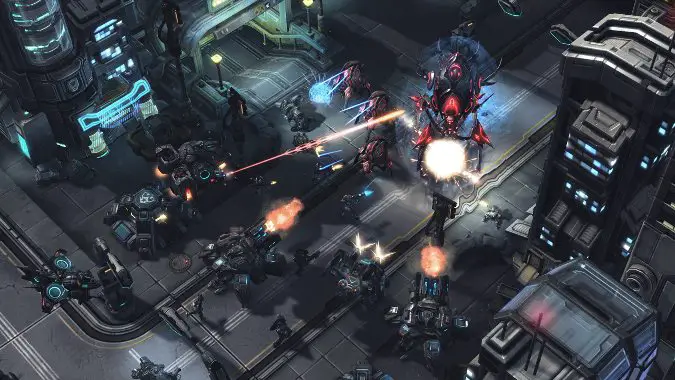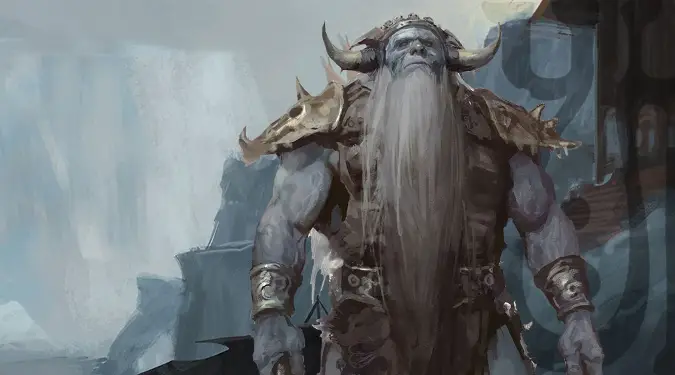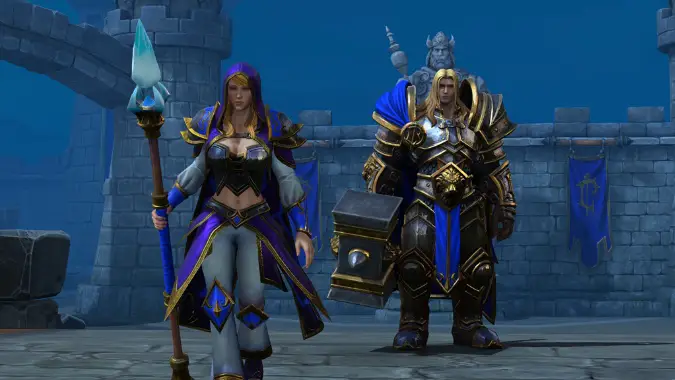The RTS genre doesn’t need a renaissance so much as it needs a revolution

I’ve been hearing about the return of real time strategy games for years and years now. It was bandied about when Warcraft 3 Reforged was announced — and yeah, that didn’t exactly work out — and when Command and Conquer Remastered came out, and I’ve heard it discussed with games like Iron Harvest and even going back to StarCraft 2. But right around the time that Age of Empires 4 came out in October, I started hearing talk of the coming “RTS renaissance.”
The RTS genre is far from dead. Just in 2021 we got AoE4, Stronghold: Warlords, and Knights of Honor 2: Sovereign. But for all of these games, we haven’t really seen the genre return to its heyday. A remaster of Command and Conquer can’t really match up to the impact that game had when it first launched. Hell, Blizzard was basically built by the back-to-back successes of its Warcraft and StarCraft franchises, but StarCraft 2, while successful, failed to ignite an esports phenomenon the way its predecessor did. And again, Warcraft 3 Reforged certainly didn’t recapture the magic.
But still, new RTS games come out with regularity, and have been all along. There have been standouts like Total War: Warhammer and its sequel, as well as the Total War: Three Kingdoms game set in feudal China, or the idiosyncratic RTS/Survival fusion They Are Billions, or even my beloved Halo Wars 2.
So rather than ask if an RTS renaissance is coming, or likely, maybe we should be asking if it’s even necessary. To paraphrase a master, can we call it a comeback if these games have been here for years?

RTS games haven’t gone anywhere, but can the genre return to its heyday?
Wired recently wrote about RTS games and Frost Giant Studios in particular, a gaming startup made up of a lot of ex-StarCraft developers that’s focused on building the next big RTS. But Wired and other publications sometimes talk about the “renaissance” of the RTS, but the genre isn’t quite as dead as that suggests.
While RTS games are no longer so explosively popular as they once were, the field has been steadily producing games every year. Since 2010 when StarCraft 2 launched, there have been a host of real time strategy games including Evil Genius 2: World Domination, Imperator: Rome, Anno 1800, and Warhammer 40K: Dawn of War 3. Not only has the genre not been dead, it hasn’t even really been sparse.
So why does it seem that we keep hearing about an RTS renaissance?
Some of this is down to the fact that a lot of these games are sequels. They’re the second or third or even further down the numbering sequels to old franchises, some that were resurrected after their original studios died. New Age of Empires games (and others) come out like clockwork, with much the same mechanics as their predecessors. There’s not much new happening in the genre. These games remain firmly in their niche and end up mostly discussed by people already deep in their milieu.
Then there’s the fact that the 4x genre — short for Explore, Expand, Exploit, and Exterminate, a genre that includes games like the Civilization series — sort of overlaps RTS games and is often the more prominent one nowadays, with games like the aforementioned Civilization series, Stellaris, and Crusader Kings. The same old RTS sequels just don’t get as much attention.
And the biggest game developers have really dropped out of the industry. Titles like Command and Conquer, StarCraft, and Warcraft haven’t published an RTS aside from remasters in years. The last big RTS release from Blizzard was StarCraft: Legacy of the Void in 2015, and ever since StarCraft 2 has subsisted on new co-op commander packs — they were pretty good, but they’re far from the same thing as a new title. And StarCraft 2 ended development in October of 2020, so it does feel like there’s room for someone to come along and give RTS games a shove back into prominence.

What’s in store for the future of RTS games?
While I think it’s hyperbolic to say that RTS is dead or dying considering the number of new releases every year, companies like Activision Blizzard have backed away from he genre, which is one of the reasons Frost Giant Studios even exists. It’s the nature of corporations to seek growth — in a very real sense, a publicly traded corporate structure is playing a 4X game all the time, always seeking to explore new markets, expand into them, exploit their novel profit opportunities, and exterminate their competition if possible.
Tim Morten — former production director of StarCraft 2, now working at Frost Giant — told Wired that StarCraft 2 had “an incredibly stable player base.” More recent games have been successful, too: Age of Empires 4 has a rating of 81 on Metacritic which isn’t bad but also isn’t indicative of a game that’s revolutionizing the genre. RTS games — and players — are out there, but a stable population and generally favorable review scores may not be enough for major studios chasing the next big thing.
We don’t need the fabled “RTS renaissance” so much as we need an RTS revolution, and that’s where studios like Frost Giant hopefully come into play. The RTS is no longer the hottest thing in gaming because there’s been little to no evolution. It will take a game that does something new to reach people outside of the RTS bubble and remind the wider gaming community just what these games have to offer.
Frost Giant says it wants to “make the next great PC real-time strategy game,” and to do that the company will have to offer more than another sequel. And it’s entirely possible that it could. There are a lot of people at the studio who know the RTS field in and out, and they could definitely shake up established formulas.
In the meanwhile, the RTS genre is still there, and anyone who enjoys traditional RTS gameplay has plenty of options. But if you want to see something new… well, we’re still waiting for the revolution.
Please consider supporting our Patreon!
Join the Discussion
Blizzard Watch is a safe space for all readers. By leaving comments on this site you agree to follow our commenting and community guidelines.
 @MatthewWRossi
@MatthewWRossi



